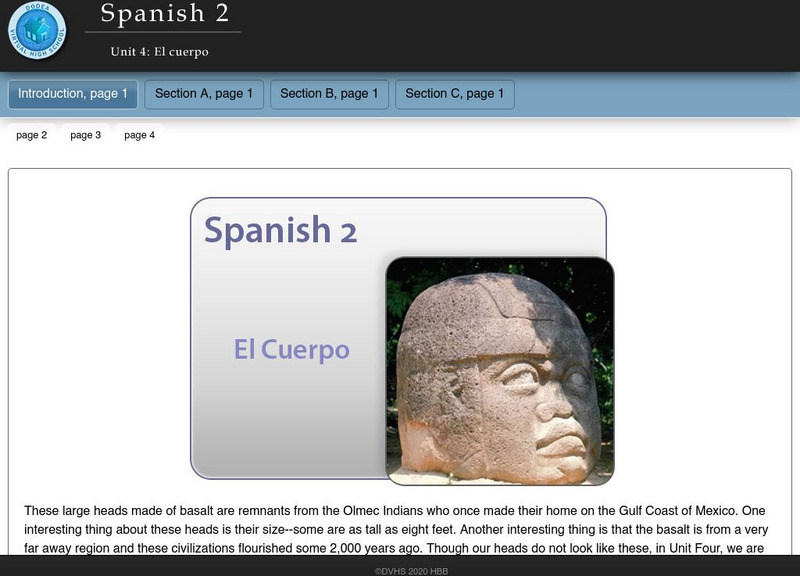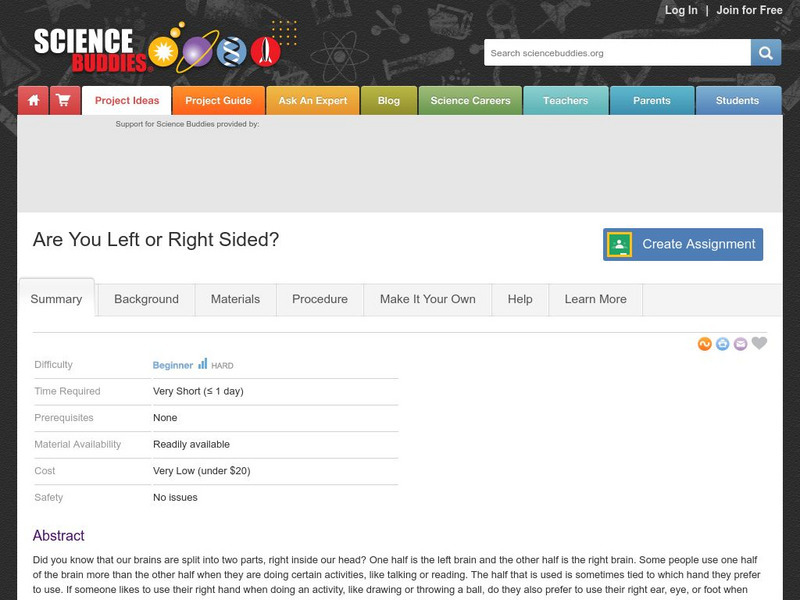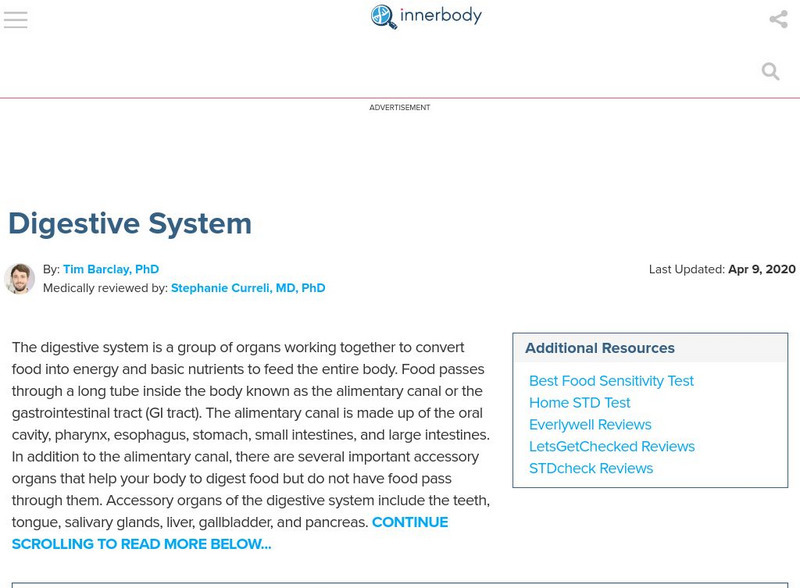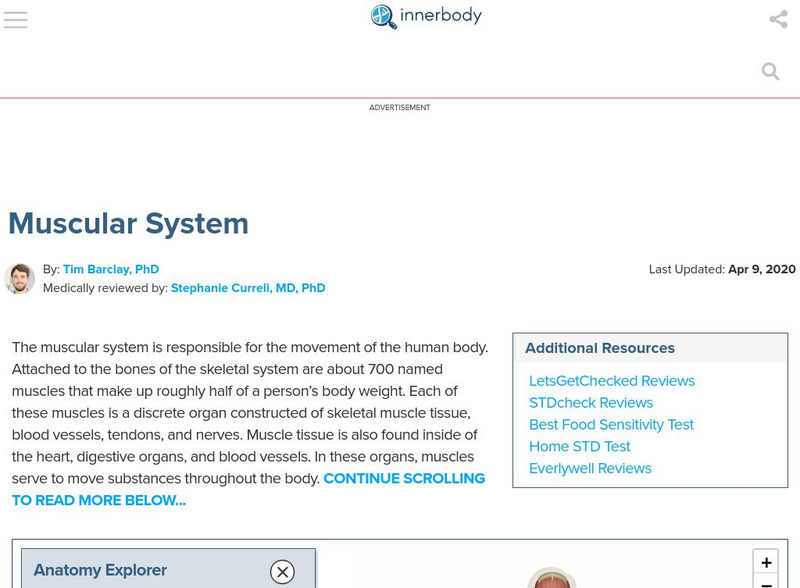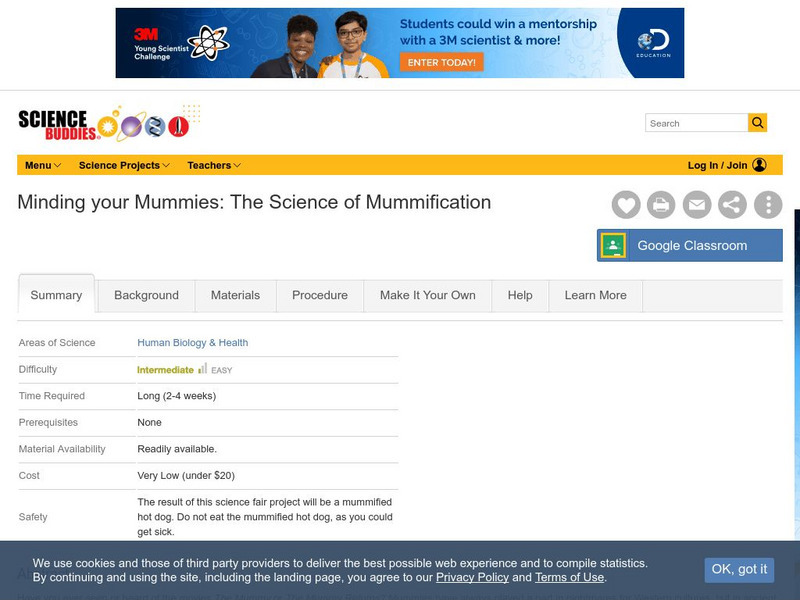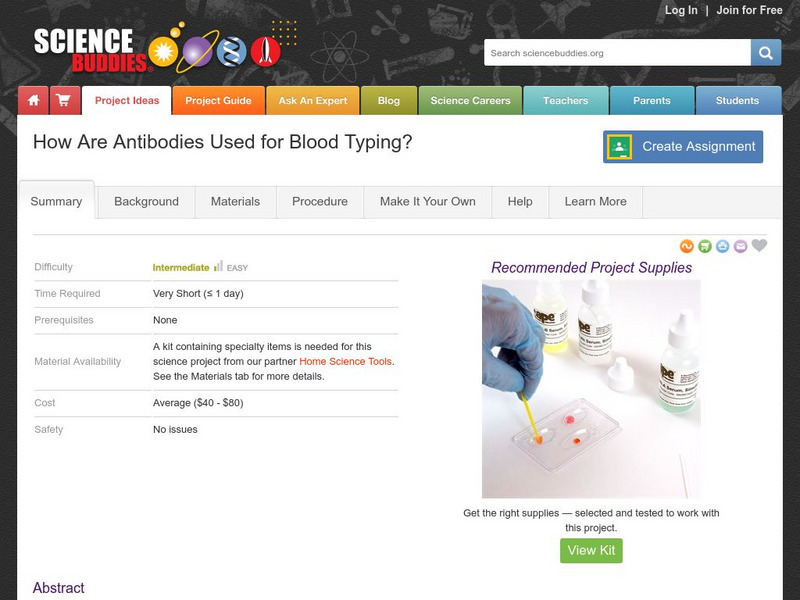University of Florida
Florida Museum of Natural History: My Body My Senses
This teacher's guide introduces children to the human body and the five senses and covers the major body parts and what they do. Children also will use their five senses to learn about the world.
OpenStax
Open Stax: Anatomy & Physiology: Anatomical Terminology
This site provides learners with information regarding anatomical terminology. It covers anatomical position, directional and regional terms used, body planes, body cavities and their organs, and the serous membranes.
Department of Defense
Do Dea: Spanish 2: Unit 4: El Cuerpo
In this fourth unit of an intermediate Spanish course, students learn about and present information about the art, music, and literature of a Spanish-speaking country in Central America or the Caribbean. They also develop vocabulary...
Science Buddies
Science Buddies: Are You Left or Right Sided?
Our brains are split into two parts, right inside our head. One half is the left brain and the other half is the right brain. Each side of your brain controls different parts of your body and most people are more dominant controlling one...
Inner Body
Innerbody: Digestive System
Take a look inside the human body's digestive system. This site features diagrams of the digestive tract and each part is accompanied by labels and descriptions. Just select an organ by moving the mouse over its image.
TeachEngineering
Teach Engineering: Out of Breath
This instructional activity goes over the parts of the human respiratory system and the gas exchange process that occurs in the lungs. It also covers changes in the respiratory system that occur during spaceflight, such as decreased lung...
American Forum for Global Education
American Forum for Global Education: Parts of You
This site is provided for by the American Forum for Global Education. Exploration of body parts is the format used to teach the economic concept of interdependence to primary students.
Open Curriculum
Open Curriculum: The Skeletal System
After studying this article, students will be able to identify the functions and structure of bones, types of bones, bone development, parts of bones, types of joints, and bone disorders.
Inner Body
Innerbody: Muscular System
At this site, students can interact with the muscular system of the human body. Click on a region of the body or the name of a muscle, and zoom in to examine it. Outlines and magnifying glasses appear and when you click on them, you see...
Science Buddies
Science Buddies: Minding Your Mummies: The Science of Mummification
Mummies have always played a part in nightmares for Western cultures, but in ancient Egypt, mummification was a serious religious ritual. They believed that preserving human remains was necessary so that the previous owner could enjoy...
Science Buddies
Science Buddies: How Are Antibodies Used for Blood Typing?
The human immune system has various ways of responding to an infection caused by bacteria or viruses. Our bodies produce proteins (antibodies) that are highly specific for the infectious agent as a part of our "humoral" immune response....
Other popular searches
- Human Body Parts Pictures
- Human Body Parts
- Spanish Human Body Parts
- Human Body Parts Edible
- Human Body Parts Bingo
- Main Human Body Parts
- The Human Body Parts
- Human Body Parts Photographs
- Human Body Parts Worksheet
- Pics Human Body Parts
- Human Body Parts Names
- Human Body Parts Poster


